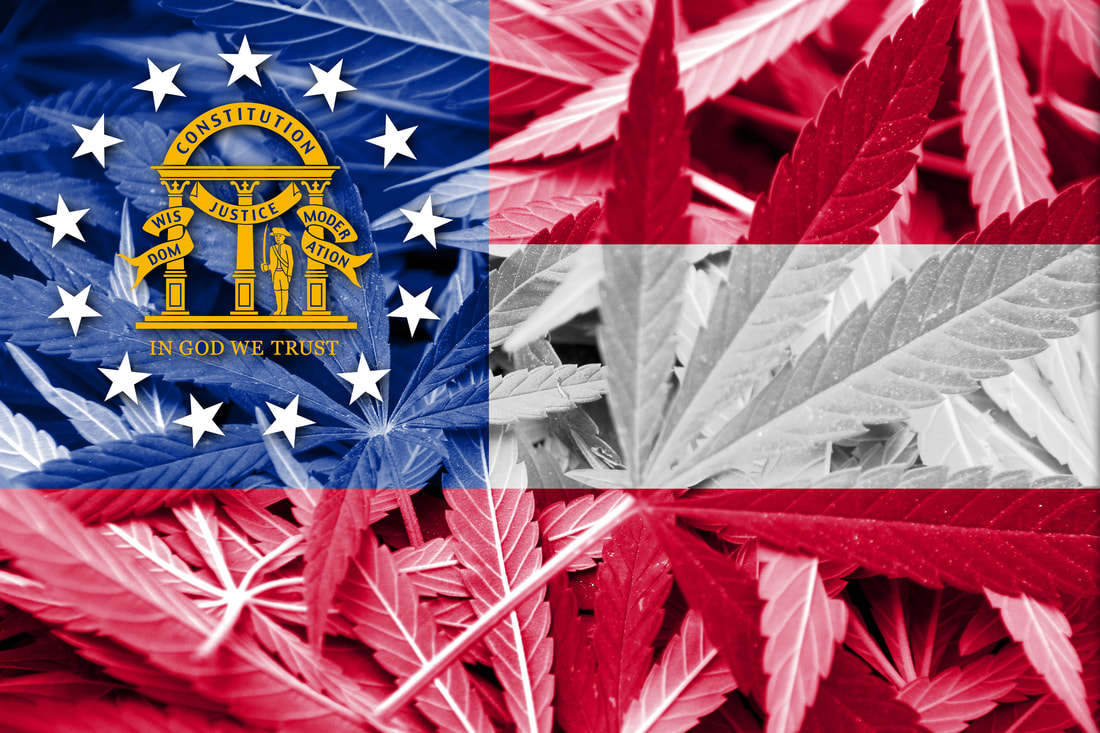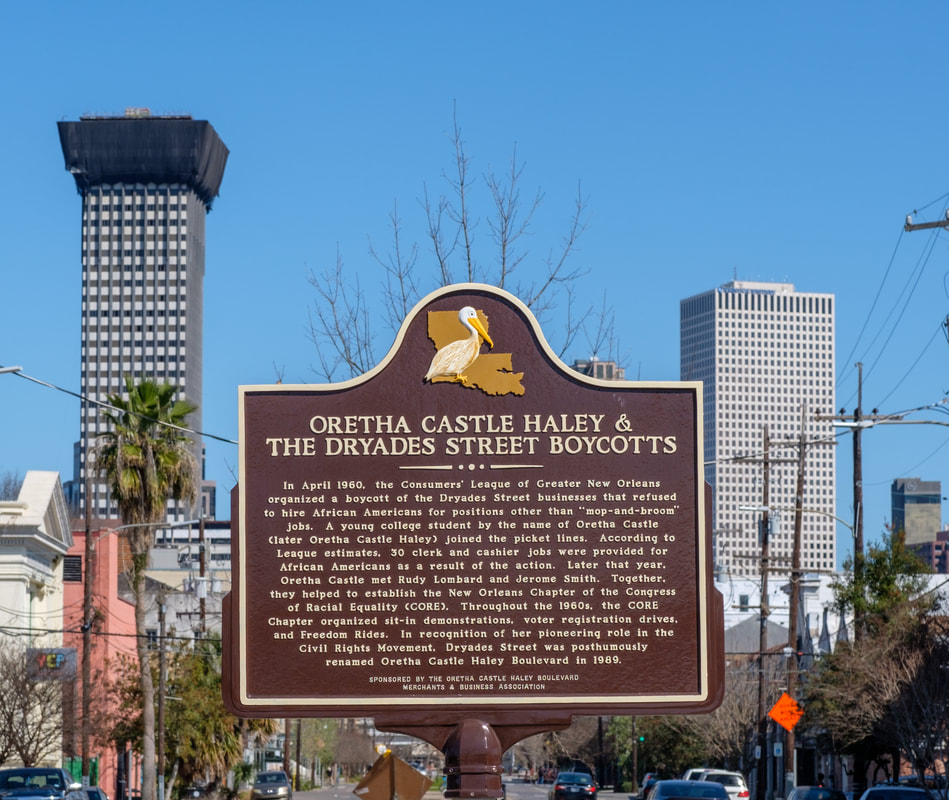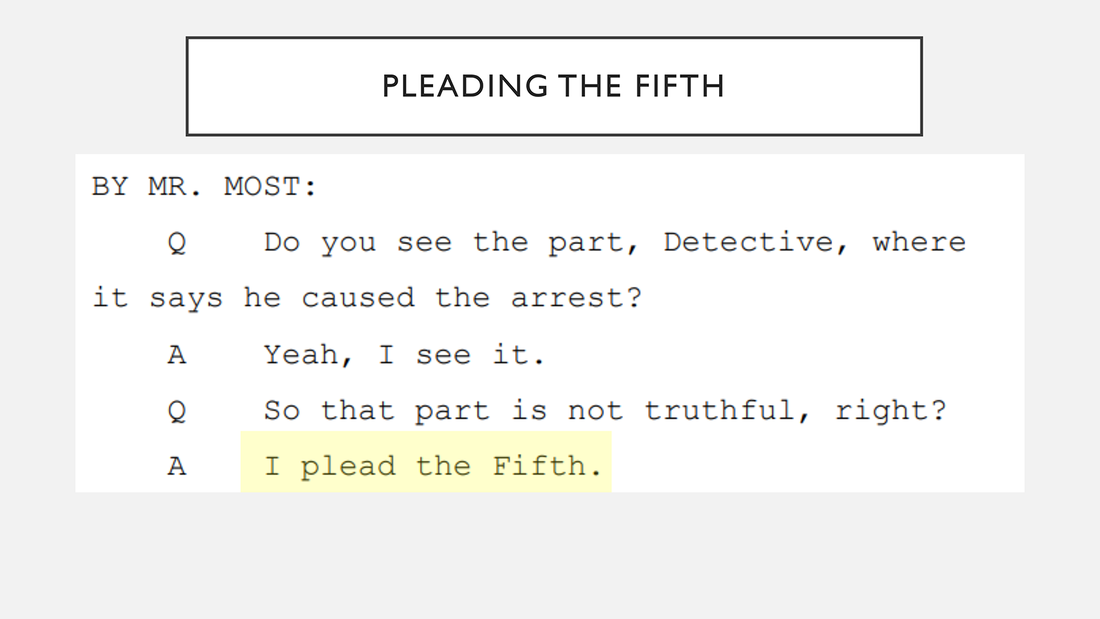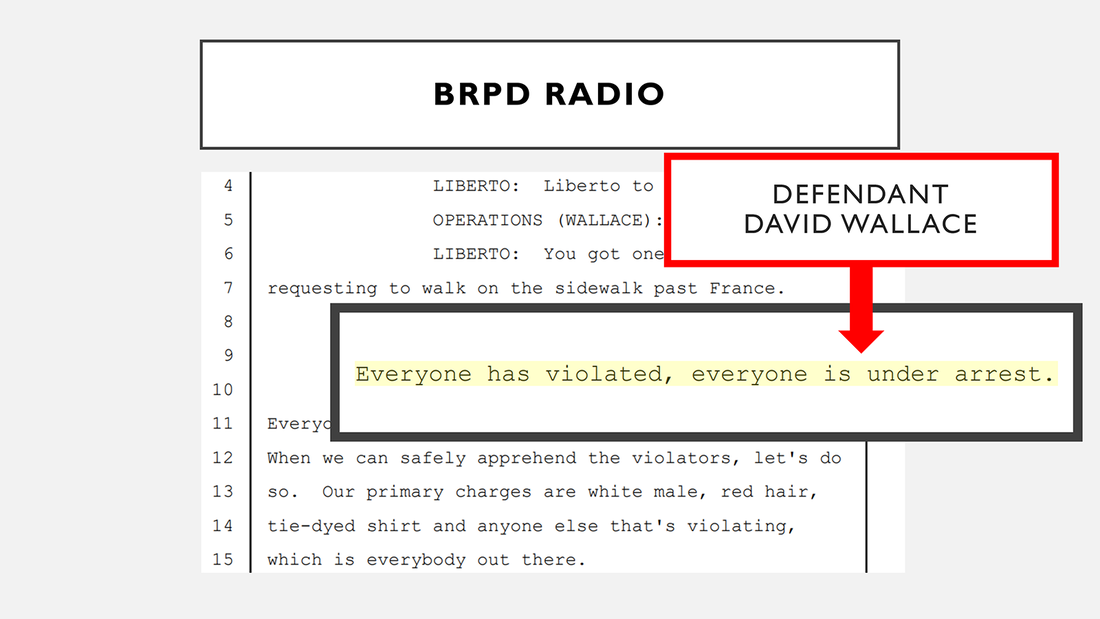|
The charges on which the former president was indicted were not immediately clear, though the grand jury has been hearing evidence relating to hush-money payments made in 2016 during his first run for president. Former President Donald Trump has been indicted.
The felony indictment has been signed and is officially filed, a source with knowledge of the case confirmed. The document remains sealed for now. The charges on which the former president was indicted were not immediately clear, though the grand jury has been hearing evidence relating to hush-money payments made in 2016 during his first run for president. The historic indictment makes Trump the first former U.S. President to be charged with a crime. Trump remains the subject of multiple ongoing investigations, including for his alleged role in the Jan. 6 attack on the U.S. Capitol. “President Trump has been indicted. He did not commit any crime. We will vigorously fight this political prosecution in Court,” his attorneys Joe Tacopina and Susan Necheles said in a statement. Trump’s defense team is now likely coordinating with the Secret Service and the Manhattan DA’s Office to arrange his surrender, said Harry Sandick, a partner at Patterson Belknap Webb & Tyler. “This is not the kind of case where there would be concern, I don’t think, about the defendant fleeing,” Sandick said. Trump took to social media Thursday evening, responding to news of his indictment with a blistering statement attacking both Manhattan District Attorney Alvin Bragg and President Joe Biden. “This is Political Persecution and Election Interference at the highest levels in history,” he wrote. “The Democrats have lied, cheated and stolen on their obsession with trying to ‘Get Trump,’ but now they’ve done the unthinkable—indicting a completely innocent person in an act of blatant Election Interference.” Trump will be required to surrender to the Manhattan DA’s Office, where he will be processed like anyone else, Sandick said. That includes having his fingerprints taken and posing for a mug shot. He will then appear before Manhattan Supreme Court Justice Juan Merchan, enter a plea, and the schedule will be set. Sandick said under New York’s bail laws Trump would likely be released on his own recognizance, though it was possible prosecutors could attempt to secure some sort of bail package. “I think he would be allowed to continue to live in his home,” Sandick said. “If that’s in Florida right now I don’t think there’s any requirement that he not live there, or have to move back to New York.” While the charges Trump faces remain unknown, Sandick said there are two issues he’s thinking about. “I think one issue is assuming that they’ve charged it as a felony, they’ll need to prove that this was done with the intent to defraud and that this was done with the intent to commit another crime,” he said. “That may prove challenging, in a case where the false record was not used to get a bank loan, just used within the private business records of his company.” “A second issue is that intent to defraud in furtherance of another crime,” Sandick added. There’s a factual issue we won’t know until the trial. What is the government’s case? Who are the witnesses, how much of the case turns on the credibility of Michael Cohen? So those will be some interesting questions if the case ultimately proceeds to trial.” While no firm date has been set, Trump’s defense team said the surrender would be sometime next week. “This evening we contacted Mr. Trump’s attorney to coordinate his surrender to the Manhattan D.A.’s Office for arraignment on a Supreme Court indictment, which remains under seal,” a spokesperson said. “Guidance will be provided when the arraignment date is selected.”
0 Comments
Vape shop companies can't stop Georgia and an Atlanta-area district attorney from cracking down on the sale of cannabinoid products because their attempt to do so runs afoul of the state's constitution, the Georgia Supreme Court held Wednesday. In a unanimous opinion, the court reversed a trial judge's denial of a motion by Georgia and Gwinnett County District Attorney Patsy Austin-Gatson to dismiss the case brought against them by SASS Group LLC and Great Vape LLC. The trial judge's injunction barring the district attorney from prosecuting sellers of hemp-derived products was simultaneously wiped out. Writing for the Georgia Supreme Court, Justice Charles J. Bethel said the companies' fatal error was suing both the state and Austin-Gatson under a new constitutional provision that exclusively waives sovereign immunity for the state, local governments and certain officials in declaratory actions. The statute requires cases involving individual defendants like Austin-Gatson, who aren't covered by the waiver, to be dismissed. "If a plaintiff wants to avail himself of the limited waiver provided by Paragraph V [of the Georgia Constitution's Article I, Section II], then he must bring the action 'exclusively against the state and in the name of the state of Georgia,' which forecloses the option of also suing a state actor in his or her individual capacity in that same suit," Justice Bethel said. Representing SASS Group and Great Vape, Thomas D. Church of The Church Law Firm LLC told Law360 the ruling means separate complaints will have to be filed against the state and Austin-Gatson "even though both lawsuits would involve identical questions of fact and law." "This obviously burdens small business owners with limited resources," Church said Wednesday. "They have to pay lawyers to fight for them while worrying whether a local government official will raid their store based on a misinterpretation of the law." Justice Bethel addressed Church's point in his opinion, agreeing that "our rules of civil practice and related doctrines generally demonstrate a preference that litigants bring all relevant claims related to their case in one action." But he said the pursuit of a separate complaint against a state official in their individual capacity makes sense under the court's 2017 Lathrop v. Deal ruling "that suits against state officers and employees in their official capacities were indeed barred by sovereign immunity." "If a lawsuit is filed against the state pursuant to Paragraph V and that suit includes an independent claim against another party not specified in that paragraph's waiver provision, then the entire lawsuit must be dismissed," Justice Bethel said. The case was prompted by Austin-Gatson's January 2022 promise to prosecute businesses and individuals involved in the sale of controlled substances including 'Delta-8-THC' and 'Delta-10-THC.' Subsequent raids of smoke shops in Gwinnett County, where SASS Group and Great Vape do business, allegedly resulted in the seizure of millions of dollars worth of currency, inventory and other property. SASS Group and Great Vape sought a declaration that their sale of hemp-derived products is legal. They claim Delta-8-THC, Delta-10-THC and other cannabinoid products are authorized under the 2019 Georgia Hemp Farming Act. Church said while he strongly disagrees with the court's reasoning and conclusion, the ruling is not a surprise. "It's consistent with this court's history of vigorously applying the doctrine of sovereign immunity to prevent aggrieved citizens from bringing lawsuits against the government and its officials," he said. "We are weighing our options. As long as government officials are misinterpreting Georgia's hemp laws, we will continue seeking remedies through the courts." Church, who has other cases related to hemp products pending, noted that the ruling was silent as to the legality of such products. He said he's "confident that the law is on our side." Marijuana, which contains more of the psychoactive component tetrahydrocannabinol – or THC – than hemp, remains illegal in Georgia. Justice Bethel described as "treacherous" the existing landscape for companies like SASS Group and Great Vape operating amid battles over cannabis-related federal and state laws and public policies. Justice Bethel's key finding was that an "action" under the sovereign immunity waiver of January 2021 means an entire case or lawsuit, as opposed to individual claims. The vape shop companies tried to protect their case against Georgia by arguing that only claims against Austin-Gatson had to be dismissed. "Action is ordinarily and more commonly used to mean a case or lawsuit, and other contextual clues within the [Georgia] Constitution confirm that to be the case with respect to the specific provision at issue here," Justice Bethel said. The Georgia Attorney General's Office, representing the state and Austin-Gatson, did not immediately respond to questions about the ruling Wednesday. Georgia Supreme Court Justice Charles J. Bethel wrote the opinion, with concurrence from all eight other justices. Georgia and Austin-Gatson are represented by Christopher M. Carr, Beth Burton, Tina M. Piper, Cristina M. Correia, Stephen J. Petrany and Ross W. Bergethon of the Georgia Attorney General's Office. SASS Group and Great Vape are represented by Thomas D. Church of The Church Law Firm LLC. The cases are The State et al. v. SASS Group LLC et al., case number S22A1243, and The State et al. v. SASS Group et al., case number S22A1244, in the Supreme Court of Georgia. As the halfway point nears for Georgia's legislative session, Peach State lawmakers are considering a handful of bills touching on hot topics that have set off litigation nationwide, including measures that could have wide-reaching impacts on homeless people, gender identity and vaping in public. A look at a few of the notable bills state lawmakers are considering Enforcing Public Camping Bans on Homeless People Under S.B. 62, which the Senate State & Local Government Operations Committee voted 4-3 to advance earlier this month, Georgia cities and counties could be made to enforce bans on "public camping or sleeping" by homeless people. S.B. 62, proposed by state Sen. Carden Summers, R-Cordele, calls for an audit to examine how state and local governments are spending federal funds allocated to programs for the homeless and gauge the success of those programs and expenses. It would also create a structure for the state to designate camping areas for homeless people called "sanctioned camping areas." If the bill were to become law, these sanctioned camping areas would be on state property designated by the State Properties Commission or on other property designated by the department for use by homeless individuals for camping, sleeping or storing personal property. The areas could also include "small shelters for no more than two individuals" provided by the agency or organization operating the camping facilities. Those staying in the sanctioned camping areas would only be permitted to camp and store personal property at areas within the site designated to them, and mental health and substance use evaluations may be offered, according to the bill. "An owner, operator or employee of a private camping facility designated as a sanctioned camping area pursuant to this code section shall be immune from liability for all civil claims, excluding claims involving such owner, operator or employee's intentional or grossly negligent conduct, arising out of the ownership, operation, management or other control of such facility," the bill says. As proposed, the bill says counties and cities would be unable to ban or discourage peace officers or prosecutors they employ from enforcing "any order or ordinance" prohibiting unauthorized public camping, sleeping or obstruction of sidewalks. It also authorizes the state attorney general to bring civil actions against cities and counties who violate the rules, and provides a pathway for citizens to bring whistleblower actions in the name of the state against violating cities and counties. States including Texas and Missouri have passed similar laws in the last few years prohibiting street camping while diverting money from affordable housing projects to short-term shelter solutions. And cities like Austin, Texas, and Denver have also passed ordinances banning public camping and allowing sanctioned campsites. Still, legal issues could arise from the Georgia bill, both from those who have experienced homelessness and those seeking stricter enforcement of the bans on public camping. The unhoused and their advocates have launched suits against local governments in California, Florida, Vermont, Pennsylvania, Idaho, Hawaii and elsewhere to block these sorts of bans, arguing they violate plaintiffs' rights to due process and free speech and to protections against unlawful property seizure. In contrast, business owners have sued to push cities to enforce some of the same ordinances the unhoused plaintiffs' suits are trying to block. Gender Identity in Crosshairs S.B. 88, which is currently being rewritten by Summers, its sponsor, would prohibit schools from teaching children under the age of 16 about matters such as gender identities, other than their biological sex, without the express written consent of the child's guardian. In its current form, the bill would ban any adult acting "in loco parentis" — defined in the bill as any person exercising control over a child as a caregiver or as a member of the staff of any private, public or charter school, social services agency, library, camp or "similar facility or program" — from providing or obtaining from a child information "of a sensitive nature" without the legal guardian's consent. This information, according to the bill, is defined as sex education or information about a child's sexual orientation or gender identity, other than the child's biological sex. In practical terms, this would require that parents of children in public, private and charter schools opt their children into sex education classes rather than opt them out if they don't want them to participate, as is the current practice in Georgia's public schools. The bill also says that schools can't change the name, sex or gender of a child under the age of 16 in their official school record without written permission from parents, accompanied by a copy of the student's amended birth certificate reflecting a change in gender. The bill would also bar adults from instructing, educating or training a child while dressed "in a sexually provocative manner, applying current community standards" as determined by their workplace without the express written permission of the child's guardian. The bill currently proposes punishing those who don't comply with its terms by withholding funds from public and charter schools, rendering private schools ineligible to be a qualified, or accredited, school or program, sanctioning certificated personnel and revoking the tax-exempt status of nonprofit organizations. Sarah Hunt-Blackwell, an attorney and Georgia First Amendment policy advocate for the American Civil Liberties Union, testified before a state Senate committee on the bill earlier this month, saying the measure would violate the First Amendment rights of students and educators by censoring "LGBTQ+ questions, concerns and experiences." According to Hunt-Blackwell, the Constitution protects "nonintimate conversations about gender identity and sexual orientation, even in schools," and S.B. 88 runs afoul of that protection. It is also a content-based regulation, she said, meaning that it limits speech due to the topic, idea or message being expressed. "Extensive case law has established that content-based regulations are presumptively unconstitutional unless they serve a compelling state interest. There is not a compelling interest in limiting nonintimate sex and gender discussions in schools," Hunt-Blackwell said. "If anything, rising suicide rates among LGBTQ+ teens suggests the compelling interest that educators need more resources for these students and should be having more of these conversations, not barring them altogether." Critics have compared S.B. 88 to so-called don't say gay laws already in place in other states that try to stop teachers from discussing LGBTQ issues with students. One such law in Florida, H.B. 1557 or the Parental Rights in Education Act, has faced widespread opposition from students and parental groups who say it is an "unlawful attempt to stigmatize, silence and erase LGBTQ people in Florida's public schools," and that its "sweeping, vague ban" on discussing sexual orientation or gender identity amounts to a chilling effect on free speech. Earlier this month, a Florida federal judge dismissed a lawsuit brought by parents and students against Florida's law, saying they couldn't point to a "concrete future harm" that would be prevented by stopping its enforcement. Summers did not immediately respond to requests for comment. A Bill to Bar Gender Surgery on Minors Another Summers-sponsored bill, S.B. 140, hopes to bar hospitals and other licensed health care facilities from providing minors with certain surgical procedures and gender-affirming care, including most sex-reassignment surgeries and hormone-replacement therapies. The bill, which the Senate Health and Human Services Committee passed 10-4 Wednesday, wouldn't prohibit medication that slows or stops puberty. However, it would ban health care providers from giving transgender minors hormones such as estrogen or testosterone. Doctors would also be banned from performing surgeries on children. Summers contends that minors are too young to make the decision to take serious medications or undergo the surgical procedures at issue in the bill. He told the committee that S.B. 140 provides a "wait-and-see approach" that would allow them to make those decisions for themselves when they are older. The bill itself includes language about that same "do no harm" approach, saying that giving a minor with gender dysphoria the time to "mature and develop his or her own identity is preferable to causing the child permanent physical damage." "The General Assembly has an obligation to protect children, whose brains and executive functioning are still developing, from undergoing unnecessary and irreversible medical treatment," the bill says. While the bill would prevent licensed health care facilities from providing most sex reassignment surgeries or any other surgical procedures "performed for the purpose of altering primary or secondary sexual characteristics" and hormone replacement therapies to minors if passed, it does include some exceptions. Individuals born with "a medically verifiable disorder of sex development" or partial androgen insensitivity syndrome would still have access to the treatments under the bill as it is currently written, as would those seeking the treatments for medical conditions "other than gender dysphoria or for the purpose of sex reassignment" as long as the treatments are deemed "medically necessary." The bill would also allow minors to continue receiving hormone treatments if they began before July 1, when the bill, if signed into law, would take effect. If the measure becomes law, licensed physicians who violate its rules would be held administratively accountable to the Georgia Composite Medical Board. The bill says they would not, however, be held civilly liable for damages to any person in any civil or administrative action or criminally responsible for injury, death or loss to person or property on the basis that they didn't comply. In prepared testimony written and shared on the ACLU's website, Hunt-Blackwell spoke out against S.B. 140, saying access to gender-affirming care is medically necessary and saves lives. "It is intrusive for this body to remove choice from Georgia families and politicize medical care for minors in this state," Hunt-Blackwell said. New Taxes, Restrictions on Vaping Sponsored by state Rep. Ron Stephens, R-Savannah, H.B. 191 and H.B. 192 would raise taxes on cigarettes and vaping products. Under H.B. 191, the tax on a pack of 20 cigarettes would increase from 37 cents to 57 cents, and a "like rate" would be applied for other size packages. That 20 cent increase would be used by the state to "address healthcare issues affecting Georgia residents," according to the bill. Under H.B. 192, the tax on vaping products would increase from 7% of the wholesale price to 15%. Proceeds from that increase would also be used to address health issues, the bill says. Stephens did not respond to requests for comment. Another measure, S.B. 47, introduced by state Sen. Chuck Hufstetler, R-Rome, is aimed at restricting vaping in public spaces. The state Senate voted 51-3 earlier this month to pass the bill, which would regulate vaping in the same way the state already regulates smoking. The bill is now undergoing debate in the House. As proposed, the bill would bring rules for vaping in public in line with Georgia's 2005 Smoke-Free Air Act, which prohibits people from smoking in many public places, excluding retail tobacco stores, hotel and motel rooms designated as smoking-friendly, bars that only admit patrons older than 18 and privately owned convention rooms. Any person found smoking in areas outlawed by the Smoke-Free Air Act commits a misdemeanor and can be fined $100 to $500. If S.B. 47 becomes law, the same would be true for vapers.
After being strip-searched, pepper sprayed, and spending the night in a cold cell following her arrest at a peaceful protest a day earlier, Cherri Foytlin walked out of a Baton Rouge parish jail on July 11, 2016, to a waiting crowd of fellow activists and friends who welcomed her with water and snacks. While it was a comfort to see familiar faces, a darker thought clouded her mind: that the officers who mistreated her might never be held accountable. The day before, officers with the Baton Rouge Police Department wielding automatic weapons, shielded by body armor and gas masks, and flanked by an acoustic weapon mounted on an armored vehicle swept through a quaint neighborhood in Louisiana's capital arresting dozens of people, including Foytlin, who were peacefully protesting the death of Alton Sterling, a 37-year-old Black man killed by officers of the same department days earlier. Videos and news reports show cops throwing protesters to the ground, pinning them, and locking their wrists with plastic zip ties. Foytlin and several other people who were arrested that day, including Karen Savage, a reporter for Juvenile Justice Information Exchange, and Blair Imani, a queer, Black and Muslim activist, said they were brutalized by cops. "I didn't think there would ever be justice for us. I didn't think it was possible," Foytlin said at a press conference in late February. But when veteran Louisiana civil rights attorneys John Adcock and William Most teamed up to file a pro bono lawsuit a year later on behalf of the arrestees, it gave Foytlin and her peers a glimmer of hope that, one day, the police department responsible for their treatment would be held accountable in a court of law. "This case was important in part because people have a right to protest," Most told Law360. "They have a right to assemble and there's freedom of press. And sidewalks and streets are traditional forums for speech." The case, Imani v. City of Baton Rouge, zeroed in on aggressive BRPD tactics that the protesters said violated state and federal laws.Though the trial opened at the beginning of February, the proceedings came to a sudden conclusion on Feb. 15, one day before jurors were scheduled to hear closing arguments, as the Baton Rouge city council agreed to pay $1.17 million to the 14 plaintiffs to end the dispute. For the protesters and lawyers, the suit was never about money. Instead, they said it was about one of America's sacred rights: to challenge government action without fear of retribution. "So many Americans think if you protest, then you will get arrested. One goes with the other. And that's not the way it is. It's not the way it's supposed to be," Adcock said. "This frightens me." Strong Evidence Made the Difference The attorneys said the strength of evidence pointing to excessive use of force by BRPD officers and alleged falsification of documents ended up being the winning card in the case. "I think the key thing about what got us to this point is they just looked so bad at trial," Adcock said. "It's hard to lie over and over when you have so much video." According to city policy, "any protester who complies with an order to clear the streets should not be arrested by the Baton Rouge Police Department." Yet on July 10, 2016, the plaintiffs were arrested despite complying with police orders, which were sometimes inconsistent, Most said during a press conference at the end of the case. At trial, plaintiffs argued that the police lacked evidence that they had failed to obey orders — first to get off the streets, then to get off the sidewalks, then to disperse. "The testimony at trial was that it was impossible to comply with," Most said. "You cannot at the same time stay out of the streets and disperse from the area, because the only way to leave the area would be by crossing the streets." The plaintiffs presented transcripts of police communications to support their claims that officers were bent on arresting anyone in the area, regardless of where they were standing. Cell phone videos, meanwhile, showed officers entering the front yard of a home without a warrant and arresting a group of protesters who had taken refuge there with permission from the house's owner. In order to book a suspect into the East Baton Rouge Parish Prison, police must produce either a warrant or a sworn affidavit from an officer specifying the crimes a suspect is accused of.
While affidavits need to be filled out after an alleged crime is committed, timestamps on internal BRPD emails showed police arrived at the protest with affidavits that were already filled out with nearly identical facts and charges. "An officer, typically, can only write down what they arrested someone for after that has happened," Most said. Adcock told Law360 that discovery is crucial in determining litigation strategy. And in the Imani case, attorneys were able to compare what was on the affidavits with the actual facts of each arrest, and were able to find a pattern. "A light bulb goes off about, 'There might be something else here to zero in on,'" Adcock said. A Crowd Control Policy Used to Target Speech The plaintiffs presented evidence aimed at showing that BRPD applied a punitive "civil unrest" protocol to crack down on protesters precisely because they were protesting the conduct of its officers in Sterling's killing. Once BRPD decided the protests fell under that policy, officers were required to disperse the crowd, even if peaceful, and were given broad powers to effectuate a mass arrest and to use deadly force, Most said. Former officer Michael Barrow admitted at trial that the policy was applied to the protesters "because of the content of their speech." But trial exhibits and testimonies also exposed a lack of preparation by Baton Rouge cops, particularly in using military-grade equipment. A BRPD representative admitted the department used a long-range acoustic device, a sonic weapon known to cause disorientation, even though it had never used it before not gave officers safety guidance. One officer said they were "messing around" with the weapon when they used it on protesters at close range, attorneys said. "What we didn't know until trial was the description that they were just 'messing around' with it," Most said. "That was quite significant testimony." BRPD's Failure to Reform Civil rights lawyers acknowledge that winning civil rights cases against law enforcement in Louisiana isn't easy. The state is located within the Fifth Circuit, where courts are among the most likely to accept assertions of qualified immunity, a doctrine that largely protects police officers from civil suits. In addition, Louisiana is one of only three states to have a one-year statute of limitations for bringing civil lawsuits challenging official misconduct in federal court. In building their case, attorneys in the Imani case took a deep dive into past actions by the BRPD that drew legal scrutiny. In 1961, the department arrested the leader of a group of Black students protesting racial discrimination and law enforcement policies. The man was peacefully standing on a sidewalk at the time of the arrest. That case, Cox v. Louisiana , ended in a U.S. Supreme Court ruling in 1965 that the man's arrest violated his freedom of speech. "It is rare that you have as on-point a case from the U.S. Supreme Court about the city that you're contemplating suing," Most said. "We knew that there was a history that this particular department had, and so we followed up on those leads in our depositions." During their research, the plaintiffs' legal team discovered other examples of alleged BRDP misconduct that echoed their own claims. In 2005, for example, the complaint said that out-of-state officers from Michigan and New Mexico who'd volunteered to help police the city as its population surged were pulled out after they reported witnessing "egregious misconduct and potentially criminal actions by BRPD officers." "There was a complete failure of accountability," Most said. "Not a single officer was investigated for any conduct related to the protests — not the signing of false affidavits, not the forgery of officers signatures, not excessive force." Only one officer, Marcus Thompson, was investigated for "conduct unbecoming of an officer" by internal affairs for actions during the protest. His transgression was complaining to colleagues that BRPD was violating the protesters' constitutional rights, according to court documents. Three attorneys representing BRPD officers in the Imani case — Joseph K. Scott of Joseph K Scott III Attorney at Law, and parish attorneys Deelee Morris and David Lefeve — declined to comment. A spokesperson for the city did not respond to requests for comment. Emotional Testimony and Hard Facts Most and Adcock made no secret of it: They were nervous to take their case to a Louisiana jury. In the Fifth Circuit, questions over the application of qualified immunity often end up before juries — a strange situation given that it typically touches on highly technical aspects of the law that would be better reserved for judges, Most said. The challenge for plaintiffs' attorneys challenging police misconduct is to both present a compelling case to jurors and to give them enough information about the law to properly evaluate qualified immunity claims. Adcock said federal judges also walk a fine line in deciding either to reject a qualified immunity defense early on in a case — a move that allows defendants to appeal to the Fifth Circuit, effectively pausing a suit for as long as a year and a half — or allowing the claims to reach a jury. During the Imani trial, the plaintiffs each took the stand to share their experiences both during and after their arrests. Some jurors showed clear sympathy for the plaintiffs, their attorneys said. One of them openly cried while hearing the testimony of Nadia Salazar Sandi, a protester who recalled fearing she would be killed while in custody. According to the group's complaint, Salazar Sandi's hands turned purple as zip ties she was bound with when she was arrested cut off blood flow. But the plaintiffs' legal team made a deliberate choice to focus less on their clients' physical and psychological damages, which, although severe, could have been seen by jurors as exaggerated. Instead, the attorneys centered their case around the actions of the officers. "We made a decision to not minimize these injuries, but certainly to understate them, and focus on the behavior of the police," Adcock said. "I think that was one way that these jurors maybe just sympathized with the protesters." The plaintiffs are represented by William Most, David Lanser and Veronica Barnes of Most & Associates, and John Adcock of John Adcock Law LLC. The respondents are represented by Joseph K Scott III of Joseph K Scott III Attorney at Law LLC. The case is Imani et al. v. City of Baton Rouge et al., case number 3:17-cv-00439, in the U.S. District Court for the Middle District of Louisiana. The overuse of plea bargains in criminal prosecutions is undermining the criminal justice system's integrity, exacerbating its racial inequality and creating "perverse incentives" to prioritize expediency over fact-finding, according to an American Bar Association report issued recently While the use of plea bargains does offer benefits, including efficiency, certainty and the encouragement of defendants to cooperate, those benefits come at a high cost, one of the report's authors, Belmont University College of Law professor Lucian E. Dervan, told Law360 on Tuesday.
"The plea bargaining system is broken, but it can be fixed," said Dervan, who is co-chair of the ABA Plea Bargaining Task Force. "But to fix the problem, we need to adopt procedures and policies that create more transparency and lead to a fair and more just system." The bipartisan task force, which includes prosecutors, defense attorneys, judges and academics, has been examining persistent problems with the system of plea bargaining since 2019, according to its report. "The fact that that sort of diverse group was able to reach some consensus about both the problems that we are experiencing and some potential solutions to those problems provides some hope that the plea bargaining system can be reformed," said Georgia State University College of Law professor and task force co-chair Russell Covey. One of the biggest reasons reforms are needed is that the current system allows prosecutors to use "impermissibly coercive incentives" to get defendants to agree to plea bargains — even when they're innocent, according to the report. Tactics that include imposing harsher sentences on defendants who choose to go to trial, holding those who reject plea deals in pretrial detention and selecting charges that offer prosecutors bargaining power are just some of the ways defendants are coerced into pleading guilty, the report says. These tactics can result in innocent people taking responsibility for crimes they didn't commit, according to the report, which points out that the Innocence Project found that 11% of prisoners exonerated through DNA evidence had actually pled guilty to their crimes. "We were very concerned about the prevalence of coercive incentives in plea bargaining practice, particularly large differences between a plea offer and what will be faced if one's convicted at trial," Dervan said. "Those incentives can be so coercive that it would be irrational for even an innocent person to turn down the deal." Concerns about innocent defendants pleading guilty are heightened by the fact that in many states, defendants are barred from challenging their convictions based on new evidence of their innocence once they have accepted a guilty plea, according to the report. Those rules also affect the law itself, according to Covey, who noted that much of the law is generated through appellate court decisions. "The kinds of cases that appellate courts have an opportunity to review and to weigh in on are cases that are tried. So if most cases aren't getting tried, there are fewer opportunities for new law to be made by appellate courts," Covey said. The criminal justice system's overreliance on plea bargains also promotes and exacerbates racial inequality, according to the report. There are significant racial disparities when it comes to prosecutors' decisions to drop or reduce charges, with white defendants being 25% more likely than Black defendants to have their most serious charge dropped or reduced as part of a plea deal, according to Dervan. Black defendants are also more likely than white defendants to be held in jail before trial, increasing the likelihood they will take a plea deal, according to the report. Plea bargains also make it difficult to uncover that racial bias and other police and prosecutorial bias or misconduct, the report added, because such misconduct is usually unearthed through pretrial litigation or at trial. "The reality that so few pretrial matters are litigated leads prosecutors to be less critical of their witnesses and less willing to scrutinize the strength of their cases, knowing that they won't be held accountable at trial," the report says. "Defense lawyers, similarly, are less likely to properly investigate cases, knowing their clients will almost certainly take a plea." The report offers several recommendations for making the use of plea bargains fairer and more transparent, such as abolishing the use of mandatory minimum sentences and placing strict limits on sentencing differentials, so that any imbalance between a sentence offered prior to trial and a sentence received after trial is "reasonable and non-coercive." Charging decisions, bail and pretrial detention also shouldn't be used to pressure defendants into pleading guilty, according to the report. "Charges should never be selected, amended, or enhanced solely or even partially for the purpose of enhancing leverage in plea bargaining, or for creating significant sentencing differentials between plea and trial outcomes," the report says. The report adds that defendants who plead guilty should still have access to the mechanisms of post-conviction review, and defendants should be made aware of all the collateral consequences that may stem from pleading guilty to a crime, such as being barred from working at certain jobs, serving on a jury and voting. Finally, courts, prosecutors and public defenders should all be collecting data about the plea bargaining process, with a particular focus on racial and other biases in the system, according to the report. "A common critique of the modern plea bargain system is how little we know about it," the report says, adding, "Sometimes the system is not even transparent to the very defendants whose fate is being negotiated." Many of these recommendations would require more resources to be allocated to the criminal system, the report's authors acknowledge, but they would also result in a fairer and more legitimate criminal justice system. That fairer system wouldn't "just have a significant impact on the defendant who falsely pleads guilty and their family and their community," Dervan said. "It also has a significant impact on the victim, whose interests go unvindicated when the wrong person is in prison, and potentially in some cases that we've identified where the actual offender goes on to commit further offenses in part because authorities stop looking for that person because they've got someone who falsely pled guilty in their place." A Missouri appellate court said on Tuesday that the state's cannabis regulator failed to adhere to its own rules when it rejected a company's application to open a medical marijuana cultivation facility. The 2-1 majority said that the Department of Health and Senior Services neglected to inform applicant MO Cann Do Inc. that its initial application lacked a certificate of good standing as a corporation and that it therefore could not reject the company's subsequent applications. "We agree that the Commission's decision was unauthorized by law in that the DHSS failed to follow ... its own regulation, when it failed to specify in the deficiency letter that [MO Cann Do's] application was incomplete for lack of a certificate of good standing," Judge James M. Dowd wrote for the majority. The opinion reverses a lower state circuit court's decision that affirmed an Administrative Hearing Commission ruling against the company, and the appellate panel remanded the matter with a directive to send the case back to the commission for reappraisal. According to the opinion, DHSS informed MO Cann Do that its August 2019 application for a grower's license was deficient and identified certain missing pieces but did not specify precisely that the company needed a certificate of good standing as a corporation issued by the Missouri secretary of state. In the initial and subsequent applications, MO Cann Do included a certificate of incorporation, which it asserted in court filings was sufficient to show it was authorized to do business in Missouri. "We find that the DHSS's rejection of MCD's application impermissibly violated its own regulation which it has no authority to do," Judge Dowd wrote. The DHSS regulation at the crux of the dispute holds that the agency "will notify" an applicant if their submission is incomplete and "will specify" what is missing, according to court documents. In a dissent, Judge Kelly C. Broniec wrote that the regulation was "merely directory, and not mandatory," and that the DHSS it did not give up its ability to reject applications if it failed to heed the letter of the rule. "[I]t stands to reason that DHSS would not want to waive its authority to deny an application simply because it failed to identify one non-compliant or missing item from a lengthy application, even an item seemingly as trivial as a certificate of good standing," Judge Broniec wrote. Counsel for MO Cann Do and a spokesperson for the DHSS did not immediately respond to requests for comment on Tuesday. The case was heard by Judges Kelly C. Broniec, Philip M. Hess and James M. Dowd of the Missouri Court of Appeals. MO Cann Do is represented by Eric Walter, Paul L. Brusati, and Jeffery T. McPherson of Armstrong Teasdale LLP. The Missouri Department of Health and Senior Services is represented by Jason K. Lewis of the Missouri Attorney General's Office. The case is MO Cann Do v. Missouri Department of Health and Senior Services, case no. ED110329, in the Missouri Court of Appeals, Eastern District, Division Four. |
HISTORY
April 2024
Categories |
© Walk 4 Change. All rights reserved.









 RSS Feed
RSS Feed